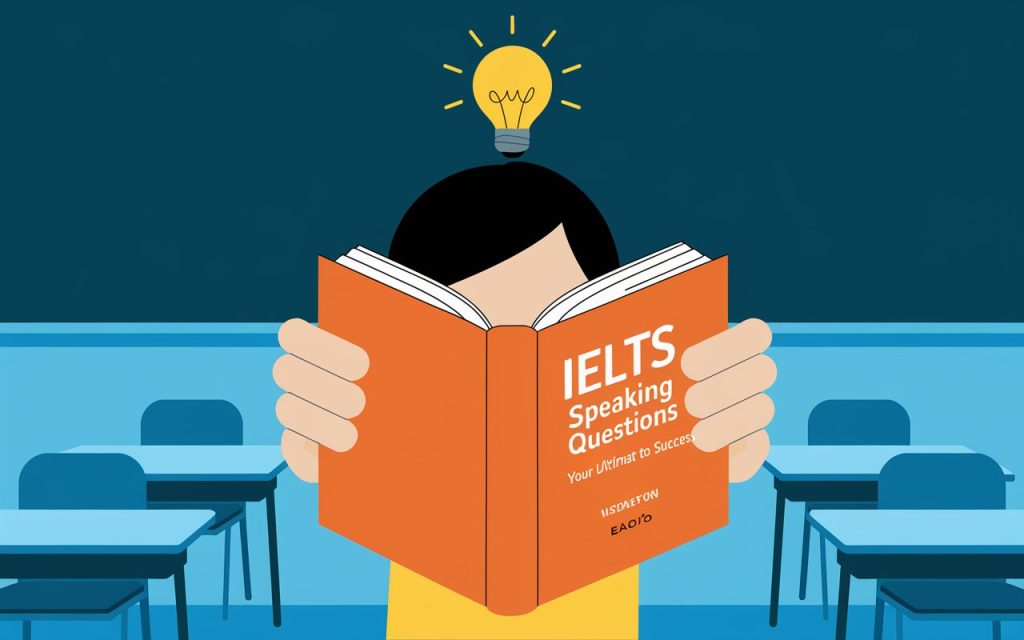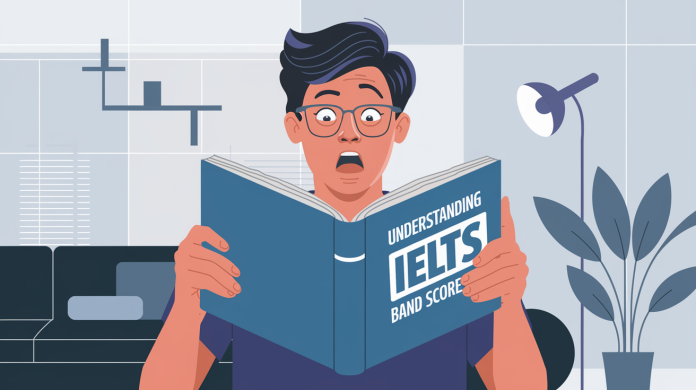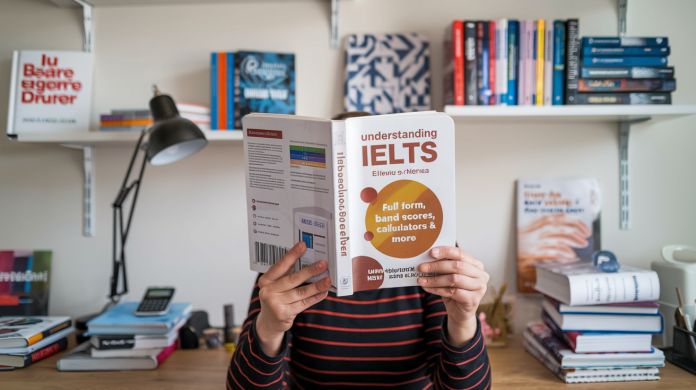
Introduction
The IELTS Speaking test is one of the most challenging parts of the exam. Why? Because it requires real-time communication skills, fluency, and confidence. Whether you’re aiming for a high band score or just want to feel more prepared, understanding the test format, common questions, and best strategies will make all the difference.
In this guide, we’ll break down everything you need to know about IELTS Speaking questions—from sample topics to expert tips to boost your score.
- Introduction
- Understanding the IELTS Speaking Test
- Common IELTS Speaking Topics
- Part 1: Introduction & Interview
- Part 2: Cue Card (Long Turn)
- Part 3: Discussion Questions
- Tips for a High IELTS Speaking Score
- Common Mistakes to Avoid
- How to Practice for IELTS Speaking
- IELTS Speaking Test Day Tips
- Conclusion
- FAQs

Understanding the IELTS Speaking Test
Overview of the Format
The IELTS Speaking test is a face-to-face interview with an examiner. It lasts about 11-14 minutes and is divided into three parts:
- Part 1 (Introduction & Interview) – The examiner asks general questions about you and your life.
- Part 2 (Cue Card/Long Turn) – You get a task card with a topic and have one minute to prepare before speaking for up to two minutes.
- Part 3 (Discussion Questions) – The examiner asks deeper, opinion-based questions related to Part 2.
Scoring Criteria
Your speaking test is assessed based on four main criteria:
- Fluency and Coherence – How smoothly you speak and connect ideas.
- Lexical Resource – The range and accuracy of vocabulary you use.
- Pronunciation – Clarity and naturalness of your speech.
- Grammatical Range and Accuracy – Correctness and complexity of grammar structures.
Common IELTS Speaking Topics
The IELTS Speaking test covers a wide range of topics, including:
- Personal Life (Family, Work, Hobbies, Daily Routine)
- Education & Career
- Technology & Social Media
- Travel & Holidays
- Health & Fitness
- Environment & Climate Change
- Culture & Traditions
Part 1: Introduction & Interview
What to Expect
In this section, the examiner will ask you basic personal questions. These are designed to help you warm up and get comfortable speaking.
Sample Questions and Answers
Q: Can you tell me about your hometown?
A: Sure! I come from Dhaka, the capital of Bangladesh. It’s a vibrant city known for its rich history, delicious food, and bustling streets.
Q: Do you prefer tea or coffee?
A: I prefer coffee because it helps me stay energized throughout the day.
Part 2: Cue Card (Long Turn)
Explanation of the Task
You’ll receive a topic card with a question. You have one minute to prepare and must speak for up to two minutes.
Sample Cue Card and Response
Cue Card: Describe a book you recently read.
Response:
“One book I recently read is Atomic Habits by James Clear. It’s about how small habits can lead to big changes. I found it incredibly helpful because it gave practical tips on self-improvement. One thing I liked was how the author used real-life examples to explain his points…”
Part 3: Discussion Questions
How to Answer Discussion-Based Questions
This part tests your ability to express opinions and discuss complex ideas. Use structured answers and examples to support your points.
Example Questions and Responses
Q: How has technology changed the way people read books?
A: Technology has revolutionized reading habits. Many people now prefer e-books and audiobooks because they’re convenient. However, some still enjoy the experience of reading a physical book.
Tips for a High IELTS Speaking Score
- Speak clearly and at a natural pace.
- Use a varied vocabulary and avoid repeating the same words.
- Extend your answers with reasons and examples.
- Stay calm and confident—mistakes are okay as long as you keep speaking.
Common Mistakes to Avoid
- Speaking too fast or too slow.
- Using basic vocabulary repeatedly.
- Giving short, one-word answers.
- Overusing filler words like um, you know, like.
How to Practice for IELTS Speaking
- Speak with a partner or a tutor.
- Record yourself and listen for mistakes.
- Join speaking clubs or discussion groups.
- Use IELTS practice apps for mock interviews.
IELTS Speaking Test Day Tips
- Relax! Take deep breaths before starting.
- Think before you speak. It’s okay to take a second to organize your thoughts.
- Maintain eye contact with the examiner.
- Smile and show enthusiasm!
Conclusion
The IELTS Speaking test may seem intimidating, but with the right preparation, you can ace it. Focus on fluency, vocabulary, and confidence, and remember—practice makes perfect! By following these strategies, you’ll improve your speaking skills and boost your IELTS score.
FAQs
1. How long should my answers be in the IELTS Speaking test?
Your answers should be detailed but natural. Aim for at least 2-3 sentences for Part 1 and a full response in Part 2 and 3.
2. Will my accent affect my score?
No, as long as your pronunciation is clear and understandable, your accent won’t impact your score.
3. Can I ask the examiner to repeat a question?
Yes, if you didn’t understand the question, you can politely ask, “Could you please repeat that?”
4. What should I do if I make a mistake while speaking?
Don’t panic! Simply correct yourself and keep going.
5. How can I improve my IELTS speaking fluency?
Practice speaking English daily, record your responses, and engage in conversations with native speakers.



